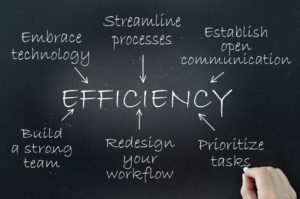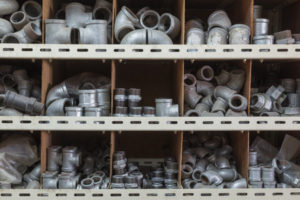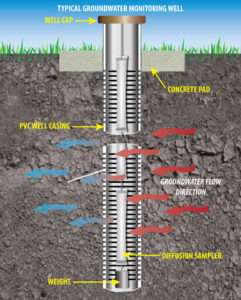
How To Sell A Manufacturing Business in 2017 – A Definitive Guide To Preparing Your Business For Sale…
Manufacturing business owners are retiring in record numbers. For many, the bulk of their retirement dollars are tied up in their business. With competition rising, it’s important to understand how to make your business stand out so that you can maximize your retirement dollars. In this article we’ll examine how to sell a manufacturing business in 2017, and the best ways to make your business appealing to quality buyers.
Written Systems

Buyers of manufacturing companies want to see written systems in place for the key business processes. Think of how quote requests come into your company, how the quote is developed and given to the customer. Think about who sources the raw material, how and from what vendors. How does the raw material move through the facility to become a finished product? How is the product shipped, billed and payment received? If you’re planning on selling your manufacturing business, documenting every key procedure will make your business attractive to the most qualified buyers. The ease of transitioning a company is a major concern of most acquirers. Having your procedures documented removes the argument that the company will be difficult to transition, making it harder for someone to discount price on this issue.
Trained Staff

The best buyers seek businesses where the business is not too dependent on the owner.
If you’re preparing to sell your manufacturing business, you need to make sure that someone other than you has the ability to handle key functions like quoting and sales.
Buyers see risk if the owner is the only one dealing with these functions and speaking with customers. Many buyers will not even consider the acquisition of a manufacturing company where no one but the owner performs key functions.
That doesn’t mean that the company can’t be sold, but it does mean that you’ll be very limited in who you can sell to and will likely not achieve the best price.
Clean Up Facility

Buyers today seek manufacturing companies that are clean and well organized. If you have metal chips laying everywhere, it doesn’t make you look busy – it makes a buyer think you don’t care about your business or machines. Selling manufacturing companies nationally, I often hear Sellers comment that they are too busy to clean up. You need to understand that there’s a lot of competition for quality buyers and the competition’s facility may be immaculate. Many small to mid-size manufacturing companies were started from scratch, perhaps in a garage. But now with the owners ready to retire, these businesses have grown and will be sold for millions of dollars. The acquirer with millions to spend doesn’t want to work in filth. It’s that simple.
Clean Up Your Inventory

Inventory is sometimes included in the purchase price of a manufacturing business and at times it’s in addition to the price. Either way, buyers don’t want a piece of metal that’s been on the shelf since President Kennedy was in office. If you’ve got a bunch of crap on the books, get rid of it before taking your company to market. Trying to increase inventory to bolster the value of your manufacturing business will turn off the best buyers with the most money to spend. You might also be shooting yourself in the foot if your deal includes an earn-out. In a recent sale the owner was to get additional funds if the sale reached certain levels in the first through third years after the acquisition. Because the owner was to get additional dollars for inventory over a certain amount a few weeks after the sale, he tried to include every piece of metal in the place and dusty old office supplies that had been on the shelf for years. The buyer will have opportunity to return the favor at the end of the year if he chooses to stall certain billing so that the earn-out isn’t paid. Use wisdom – don’t step over dollars to pick up pennies.
Prepare Documents

In order to successfully sell your manufacturing business, there will be certain information that will have to be supplied to your broker and to buyers. Some information is highly sensitive and should only be released at certain stages and only to people that have been fully financially vetted. Here’s a look at the most common information requests from top buyers:
- Three years of tax returns and financial statements
- List of industries served and the amount of income attributable to each
- Top 10 customers and amount of income attributable to each, (customer name should not be included on list in the early stages of inquiry; rather they should be listed as customer #1, customer #2, etc.)
- Accounts receivable aging report. Average customer payment time and any discounts given for early payment
- Accounts payable aging
- Software used throughout the company, both for accounting and engineering
- Facilities list and service records for key machines
- Inventory list with aging
- Capital expenditures made in the last 5 years
- Employee roster with position, age, length of service, pay rate, last raise
- List of key competitors
- List of any advertising, both in print and online
- Information on all insurances
- Information on employee benefits
- List of all money and other benefits received by the shareholders and documentation for each
- List and copies of any service contracts for the company
While there may be more questions that arise during the sale process, if you have this information readily available, you’re off to a great start.
Environmental Compliance

Some states require environmental clearance to sell a manufacturing business and/or sell or lease industrial real estate. This process takes time. Some states will require a portion of the sale proceeds to be held in escrow until the environmental health of the property is determined. Your M&A attorney will know the requirements for your state and guide you through the process. A word of caution, some environmental testing companies seek to string out the process and charge exorbitant sums of money. Ask for references and speak to prior clients. Choosing the appropriate professionals will make the process smooth and leave you with more sale proceeds in your pocket.
Engage Professionals
The Business Broker
Working with a broker is imperative to successfully sell a manufacturing business. If you look at the typical list of documents requested from buyers, it quickly becomes clear that certain information would allow a competitor to hurt your business. Having a layer of protection between you and the buyer is critical. A skilled broker will not allow competitors to have certain information. Additionally there is an enormous amount of time spent vetting buyers both professionally and financially. It’s a full time job that a seller should not be involved in during a time when they need to maintain sales. Do brokers cost money? Of course, but they add incredible value. If you’re selling a manufacturing business you’ll want to search for someone who specializes in and understands manufacturing. For manufacturing companies, a local broker might not be the best choice. Recent studies show that buyers typically come from more than 100 miles away to acquire the right company. Having a business broker that can provide exposure to a national audience of top buyers will more than pay for itself by achieving the best possible price.
M&A Attorneys

Your local attorney who has handled your will, your traffic violations and getting your kid out of trouble is not what you need for the largest transaction of your life. Unfortunately, that’s whom most manufacturing business owners choose to help them navigate the process. Many of these attorneys have never dealt with the issues that will come up in an M&A transaction. In a recent transaction a Seller’s attorney almost blew the deal multiple times. They sent the buyer a document transferring the obligation to make lease payments on a key piece of equipment from Seller to Buyer. However, the contract called for the Buyer to get the business debt free. When I called her on it, the attorney said she had not read the contract. Either she had read it and was trying to pull a fast one, or she was telling the truth and had not read the contract. Either one is BAD! The buyer was left questioning everything and wondering what else the Seller and his advisors were trying to hustle. Hire someone who knows how to navigate these issues. M&A Attorneys save deals and are a smart investment.
M&A Tax Specialists
In a recent transaction we referred our client to an M&A tax specialist. The company provided a transaction report that recommended a particular allocation of the purchase price. The result was a $500,000 savings on the taxes resulting from the transaction over what the Seller’s regular accountant said would be due. The guy in town that does your tax return every year may not know that latest case law with regard to mergers and acquisitions. You need an expert. It doesn’t matter if you get a great sale price for the sale of your manufacturing company. What matters is how much of it you get to keep.
Bottom line, if you follow these steps, it is not just highly likely that you’ll be able to sell your manufacturing business in 2017, but you’ll probably get a better price than competing businesses. Visit www.AcceleratedMfgBrokers.com for more tips on making your manufacturing business acquisition worthy.
Visit our 2019 article about 6 Critical Steps HERE.
